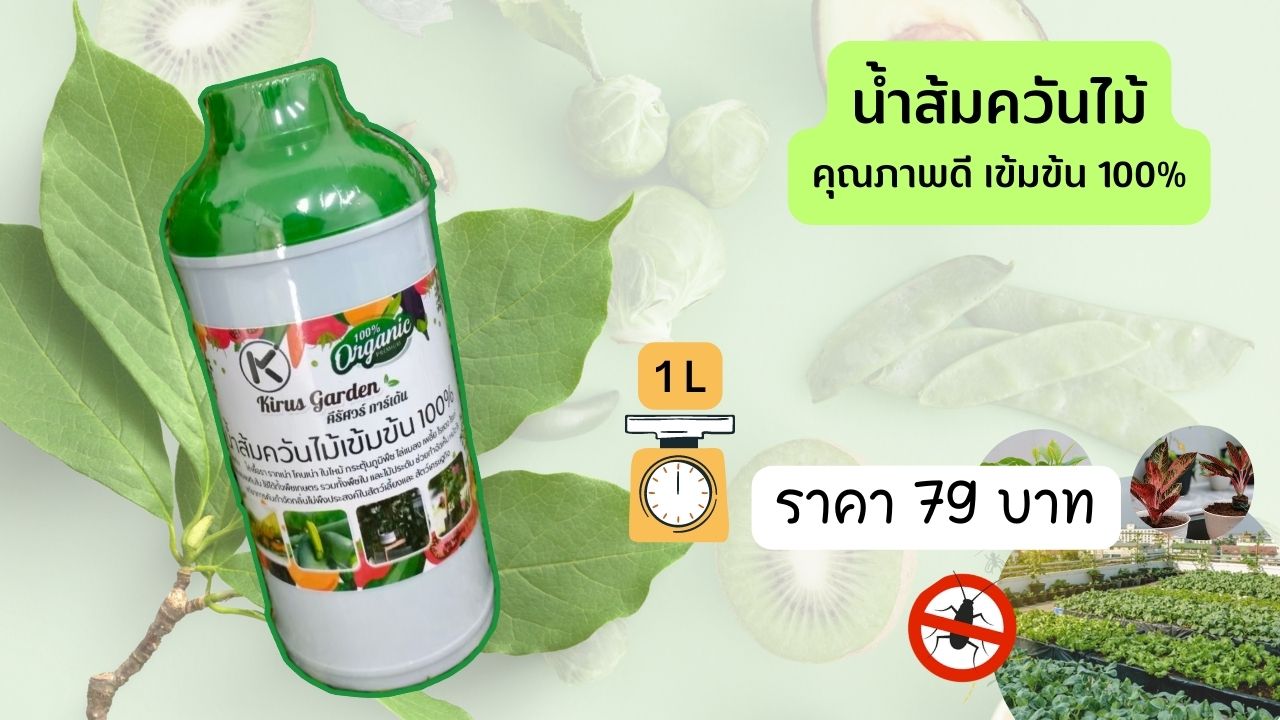wood vinegar
wood vinegar : What It Is And How To Use It Right
What is wood vinegar? Wood vinegar is a byproduct from charcoal production. It is a liquid generated from the gas and combustion of fresh wood burning in airless condition. When the gas is cooled, it condenses into liquid. Raw wood vinegar has more than 200 chemicals, such as acetic acid, formaldehyde, ethyl-valerate, methanol, tar, etc. Wood vinegar improves soil quality, eliminates pests and controls plant growth, but is slightly toxic to fish and very toxic to plants if too much is applied. It accelerates the growth of roots, stems, tubers, leaves, flowers, and fruit. In certain cases, it may hold back plant growth if the wood vinegar is applied at different volumes. A study shows that after applying wood vinegar in an orchard, fruit trees produce increased amounts of fruit. Wood vinegar is safe to living matters in the food chain, especially, insects that help pollinate plants.
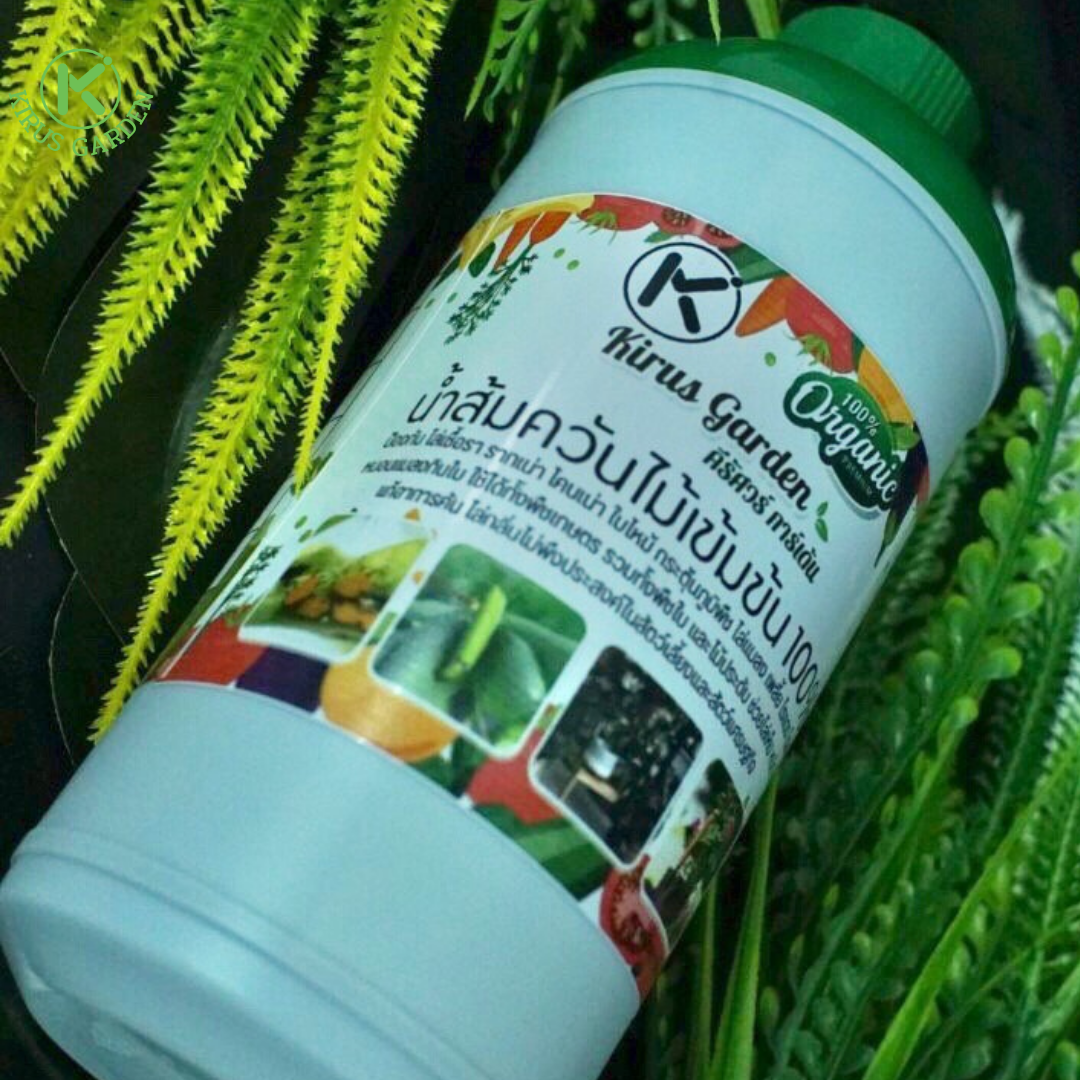
Ingredients of Wood Vinegar
A total of 17 chemical compounds were identified, representing 83.96% of the compositions in the wood vinegar. Three major components, included 2,6-dimethoxyphenol (syringol, 29.54%), 2-methoxyphenol (guaiacol, 12.36%), and 3,5-dimethoxy-4-hydroxytoluene (11.07%), were found in the wood vinegar.
Benefits of wood vinegar in agriculture
Eradicates plants lice, White ants, Termites, Insects harmful to plants. Prevents and eradicate insects and pests that attack plants, enhances the efficiency of plants to absorb fertilizers and foliar sprays through leaves, with formula that enhances the efficiency of plant growth giving rise to yield increase.
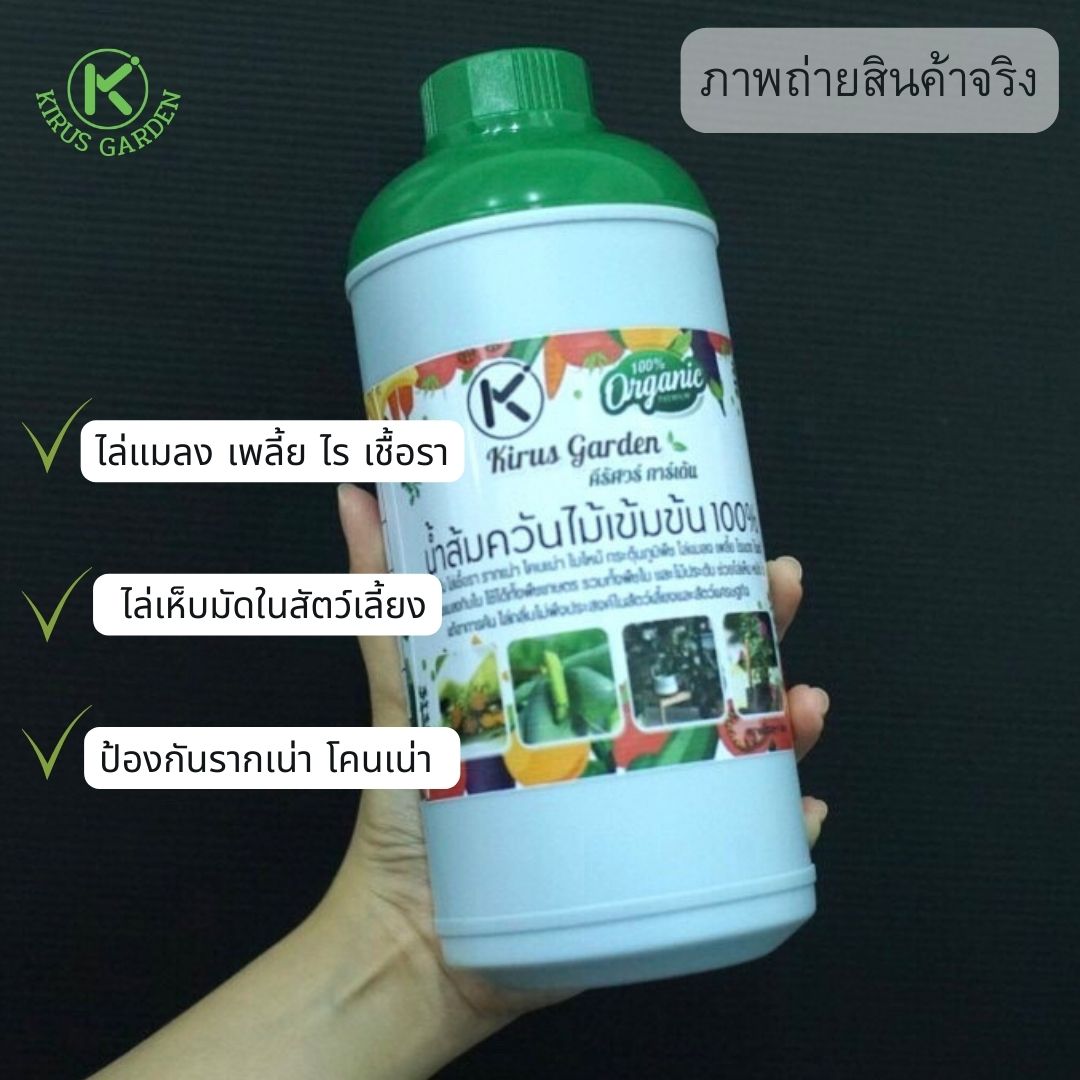
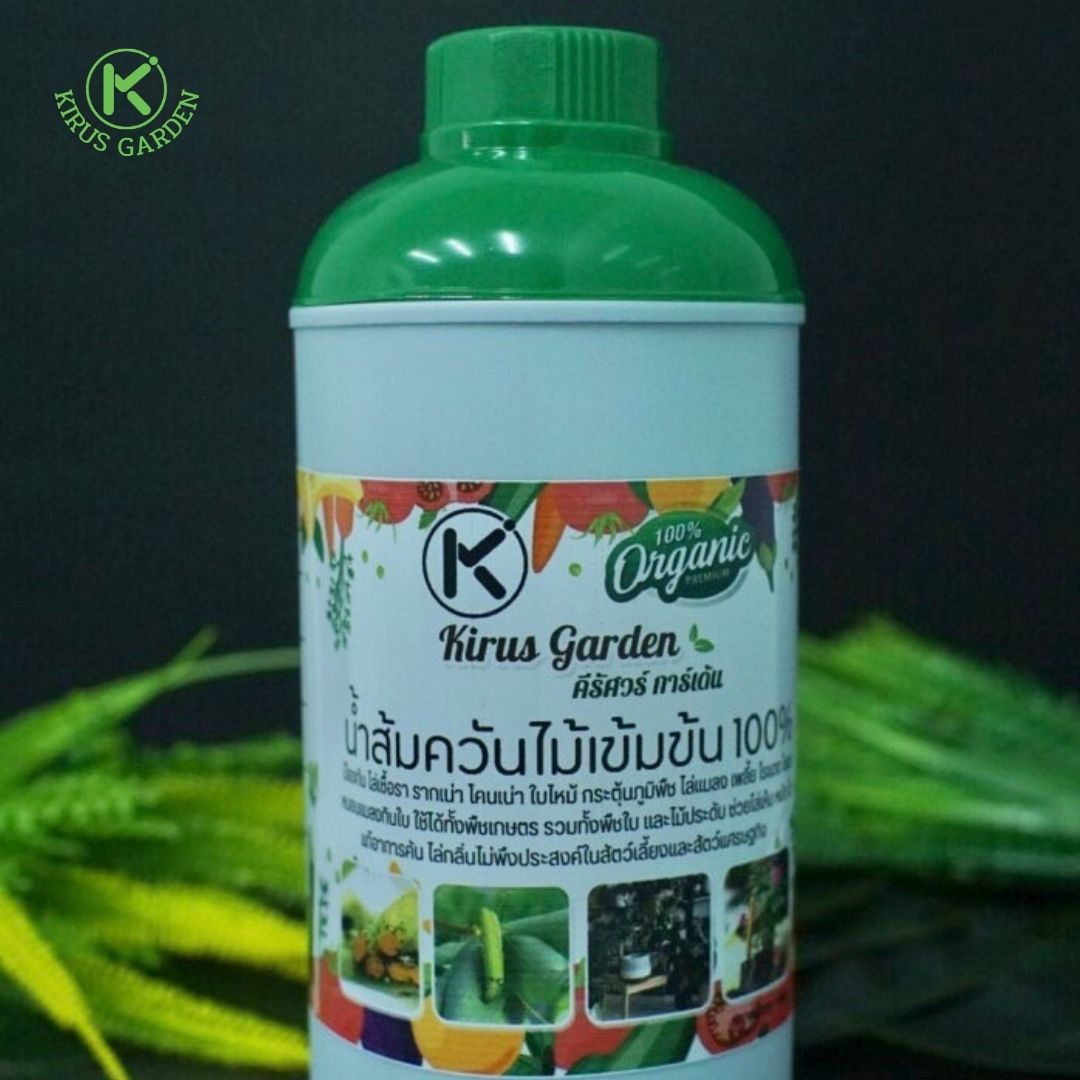
How to use wood vinegar
Wood vinegar sprayed onto plants sticks firmly on the surface of plants as well as pests, Reduces the loss of sprayed substances otherwise washed away easily and distributes evenly on leaves and stems.
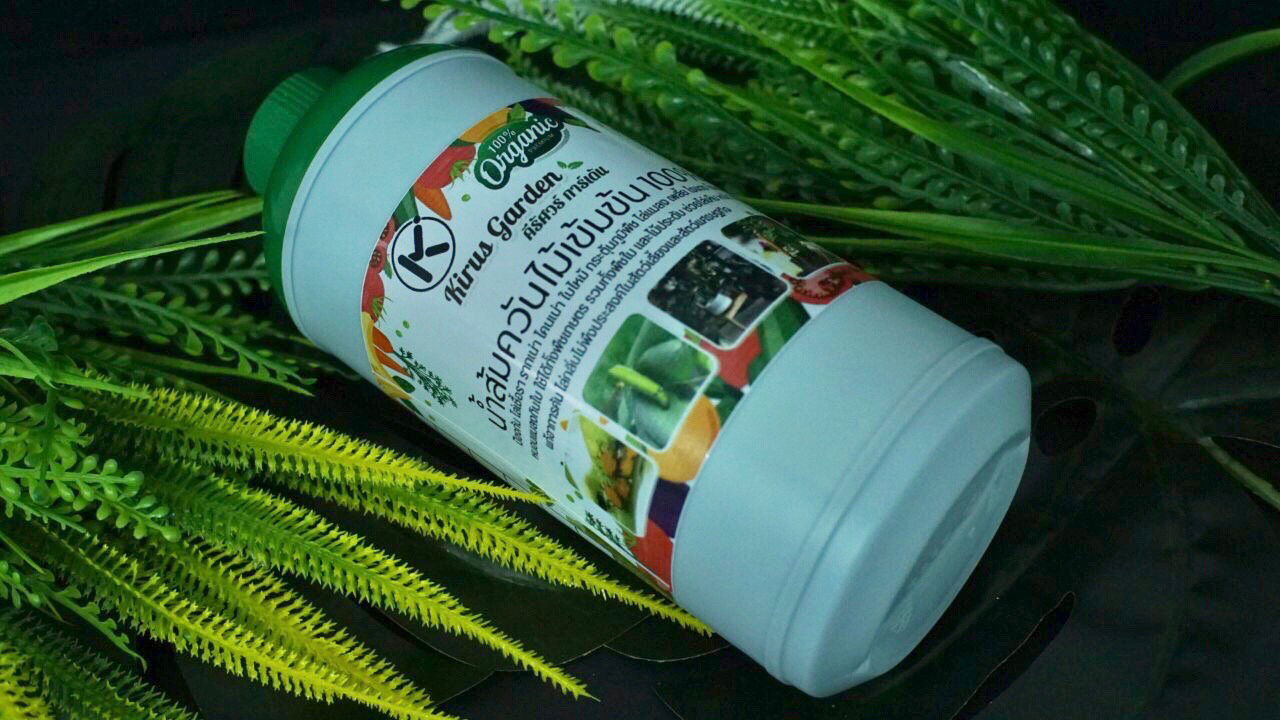
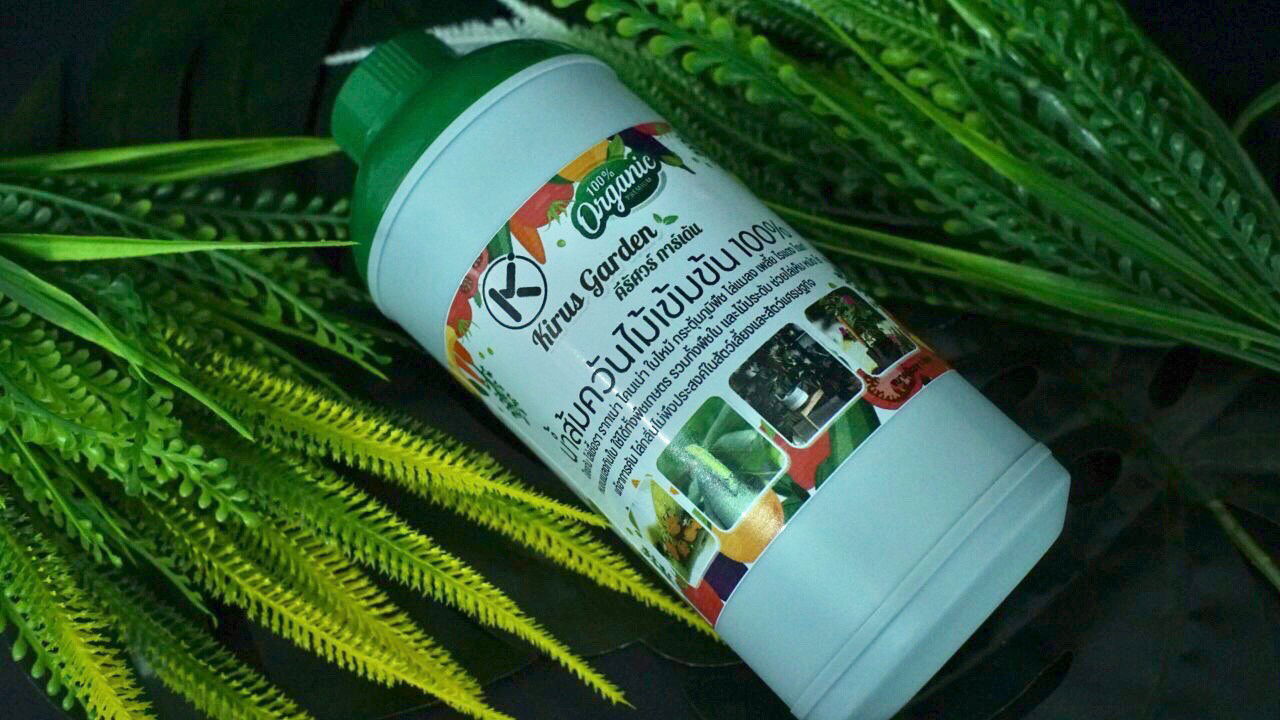
Price: Concentrated wood vinegar, Kirus Garden formula

